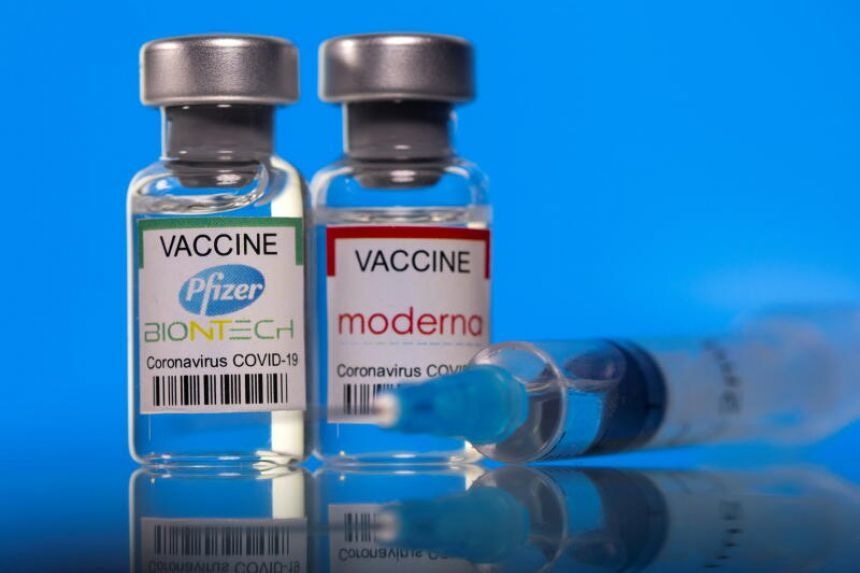Pfizer, Moderna COVID vaccines appear effective against Indian variants: Research
- As per lab experiments involving cell cultures, the B.1.617 and B.1.618 variants seem to be partially resistant to the antibodies developed by the vaccination
- Researchers say the vaccine's antibodies are a little bit weaker against the variants, but not to an extent that it would have much of an effect on the protective ability of the vaccines
(Karachi) The coronavirus vaccines developed by biotechnology giants, Pfizer and Moderna, appear to protect against triple-mutant coronavirus variants from India, B.1.617 and B.1.618, researchers have revealed.
The recent study has been carried out by the New York University Grossman School of Medicine and NYU Langone Center and is considered preliminary because it has not yet been published in a peer-reviewed journal.
As per lab experiments involving cell cultures, the B.1.617 and B.1.618 variants seem to be partially resistant to the antibodies developed by the vaccination.
Researchers said that there is a good reason to believe that vaccinated individuals will remain protected against the B.1.617 and B.1.618 variants.
They added that the vaccine's antibodies are a little bit weaker against the variants, but not to an extent that it would have much of an effect on the protective ability of the vaccines.
Earlier, the World Health Organization reclassified the highly contagious triple-mutant Covid variant spreading in India as a “variant of concern,” indicating that it’s become a global health threat.
WHO's Technical Lead for COVID-19, Maria Van Kerkhove said the variant, known as B.1.617, has been found in preliminary studies to spread more easily than the original virus and there is some evidence it may able to evade some of the protections provided by vaccines.
“And as such we are classifying this as a variant of concern at the global level,” she said.
Kerkhove stated, “Even though there is increased transmissibility demonstrated by some preliminary studies, we need much more information about this virus variant in this lineage in all of the sub-lineages, so we need more sequencing, targeted sequencing to be done.”



















Comments
Comments are closed.